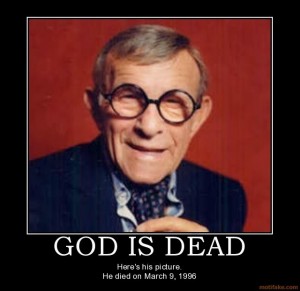While this is not true in all cases, I have found that atheists often have a sense of pride in the idea that they have managed to eschew religion. Worse yet, sometimes people exhibit sheer hatred for religions in general. A quick search for “atheism religion” on Amazon.com shows how much vitriol surrounds the discussion of religion in regards to views by atheists. Yet, in many cases, atheists are indeed religious. While this seems like a contradiction, this seeming contradiction is the result of a weak understanding of religion and the concept of atheism.
I come from a background in mathematics and computer science, and so I will use that background to systematically define a reasonable working definition of religion for this discussion. This definition may additionally be useful in the general study of religion from an anthropological perspective. It should not be considered the only definition since the topic of religion is a complex one and there will probably always be differences in opinion as to what is considered religious and what is not considered religious.
Defining Religion
In order to define a religion, we must start by defining a belief. A belief can be defined as an assertion regarding the truth value of a statement, whose truth value is not known. However, not all beliefs in that which is unknown can be considered a religious belief. If we have a method which would give us insight into the truth value of the statement, then such a belief is not religious. How can we gain insight into that which is unknown? The answer is scientific investigation. If we can devise an experiment which could help us find an answer then the statement, and thus the belief, is within the realm of science. If we cannot, then the statement and belief is outside the realm of scientific investigation.
We can then easily establish a rigorous definition of a religion: a religion is a (non empty) collection of religious beliefs along with a (possibly empty) collection of patterns of behavior that are a result of such beliefs. These patterns of behavior would include holding secular beliefs as a byproduct of religious beliefs. A person who is religious would then be someone who has at least one religious belief, and their personal religion would be the largest collection of religious beliefs that they hold, along with all patterns of behavior that are derived from those beliefs.
Why?
One might question the need for a new definition of religion and why we should view the aforementioned concept of religious beliefs as such. The answer is the application of Hitchen’s Razor. Since religious beliefs are those beliefs that cannot be tested, they violate Hitchen’s Razor.


